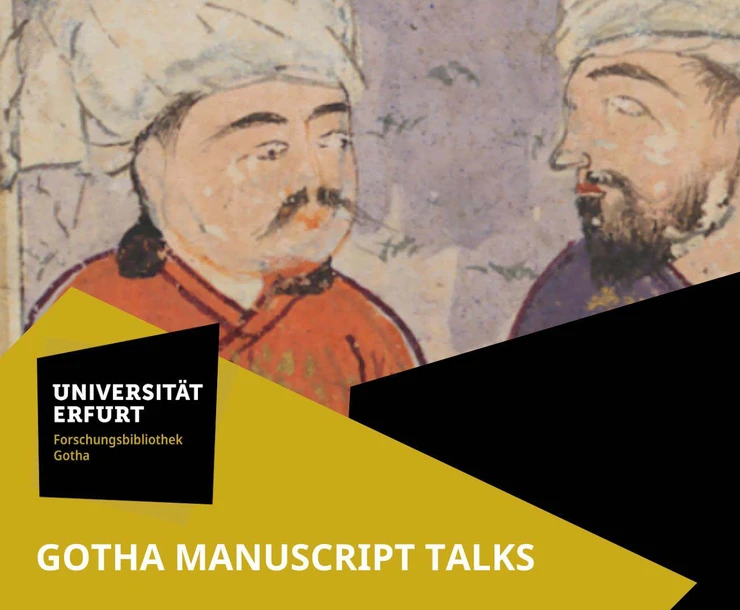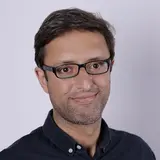"Gotha Manuscript Talks" series continues
The first talk by Professor Ahmed El Shamsy (Chicago) entitled "Book Culture in Nineteenth-Century Egypt through the Lens of Seetzen's Manuscript Collection" will take place on Wednesday, 6 October, at 6.15 pm. This will be followed by further lectures by Dr Carsten Walbiner (Beirut) on 20 October on the Arabic manuscripts of the Custody of the Holy Land in Jerusalem, by Professor Verena Klemm (Leipzig) on 3 November on the hidden literary history of the Ismaili collected manuscripts from Syria and finally by Professor Sabine Schmidtke (Princeton) on 17 November on the topic "Martin Schreiner (1863-1926) between the Study of Islam and the Science of Judaism".
The subject of the first discussion is once again the collection of more than 1,500 Arabic manuscripts that Ulrich Jasper Seetzen (1767-1811) collected in Cairo for his patron, Duke Ernst II (1745-1801) of Cairo. (1745-1804) of Saxony-Gotha-Altenburg. The manuscripts cover the whole of Islamic history, from early Qur'anic fragments to poems about Napoleon's fledgling occupation of Egypt. Examining the contents of the collection in conjunction with Seetzen's correspondence offers an insight into the book culture Seetzen encountered in early 19th century Cairo.
Ahmed El Shamsy is associate professor of Islamic thought at the University of Chicago. He is concerned with the intellectual history of Islam, focusing on the development of classical Islamic disciplines and scholarly culture in their broader historical context. His research addresses topics such as orality and literacy, the history of the book, and the theory and practice of Islamic law. His most recent book, Rediscovering the Islamic Classics, traces the transition of classical Islamic literature from manuscript to print. His other publications include the monograph "The Canonization of Islamic Law" and numerous articles on various aspects of the Islamic tradition.
The Gotha Research Library preserves the third largest collection of Oriental manuscripts in Germany. These approximately 3,400 manuscripts, most of which came into the library around 1800, are relevant to all fields of scholarship and shed light on the most diverse aspects of manuscript cultures. By inviting renowned researchers to the "Gotha Manuscript Talks", the Gotha Research Library would like to use the material in a webinar series to provide impulses for an increased exchange on manuscript cultures across disciplinary boundaries and to bring researchers and interested parties into conversation with each other about oriental manuscripts. The moderator is Dr Feras Krimsti, who is in charge of the library's collection of oriental manuscripts.


